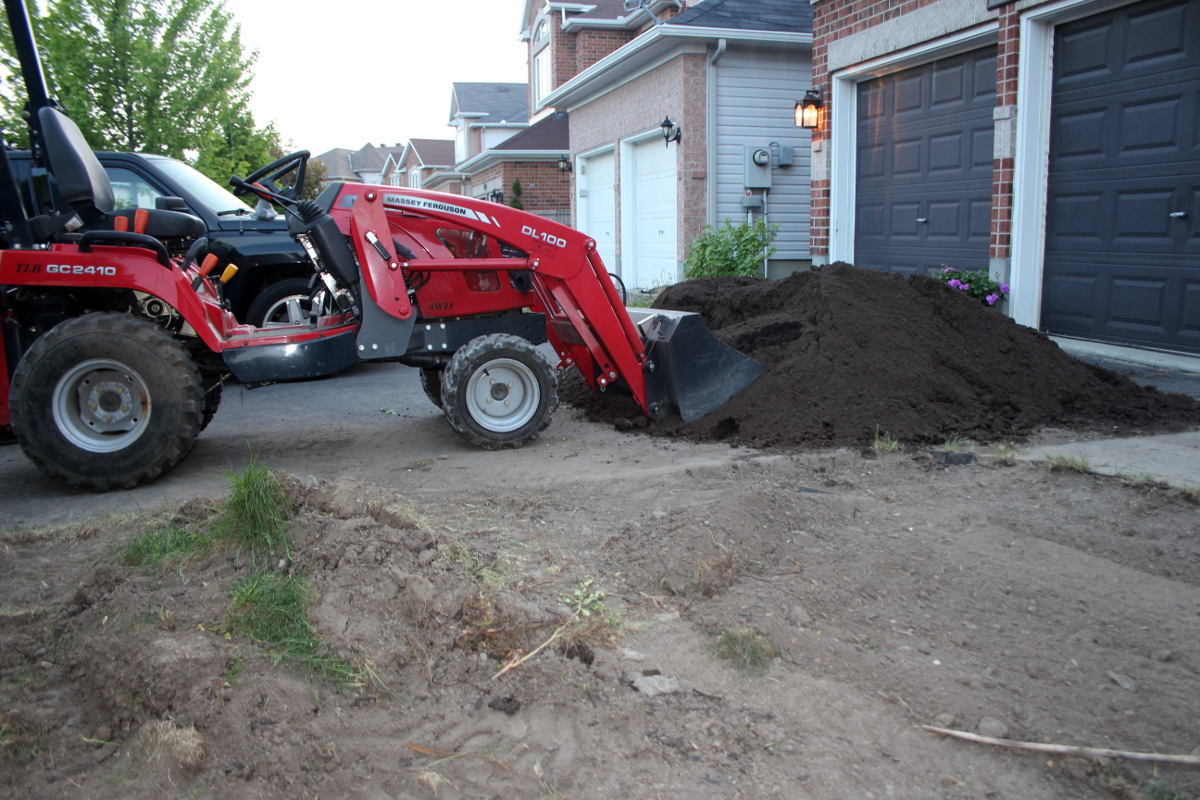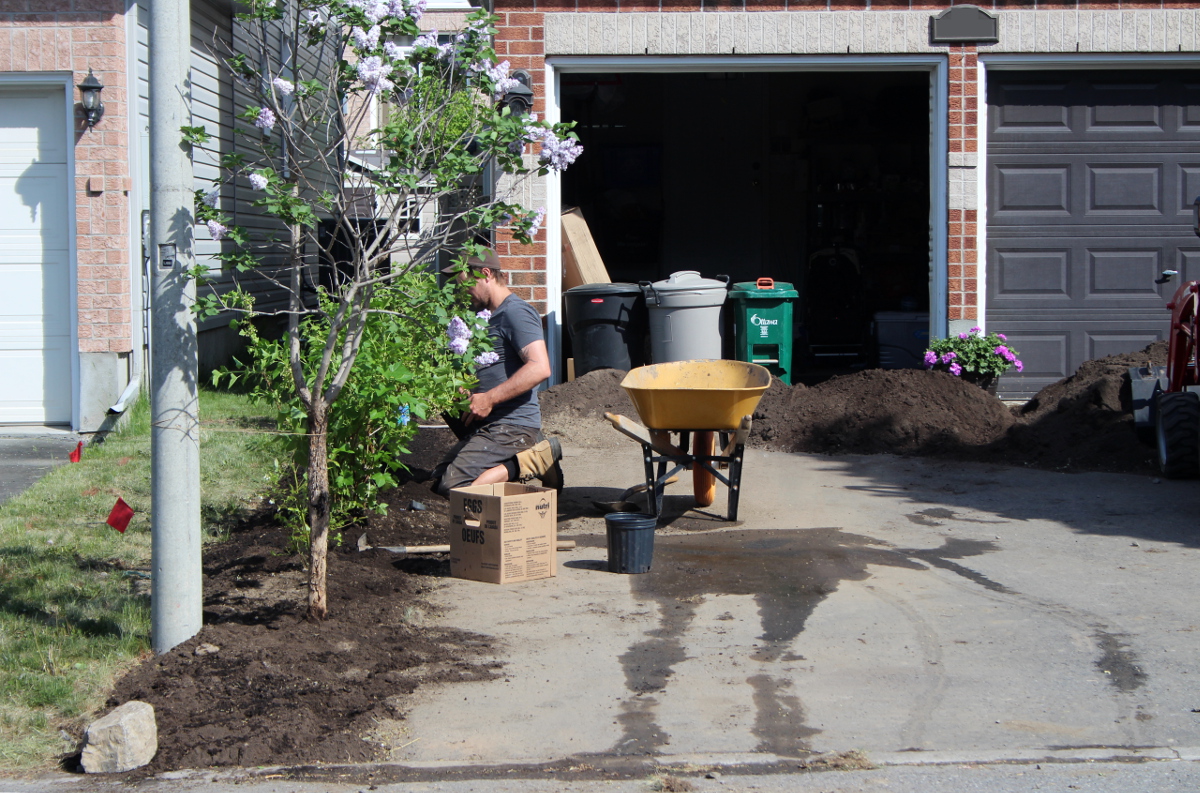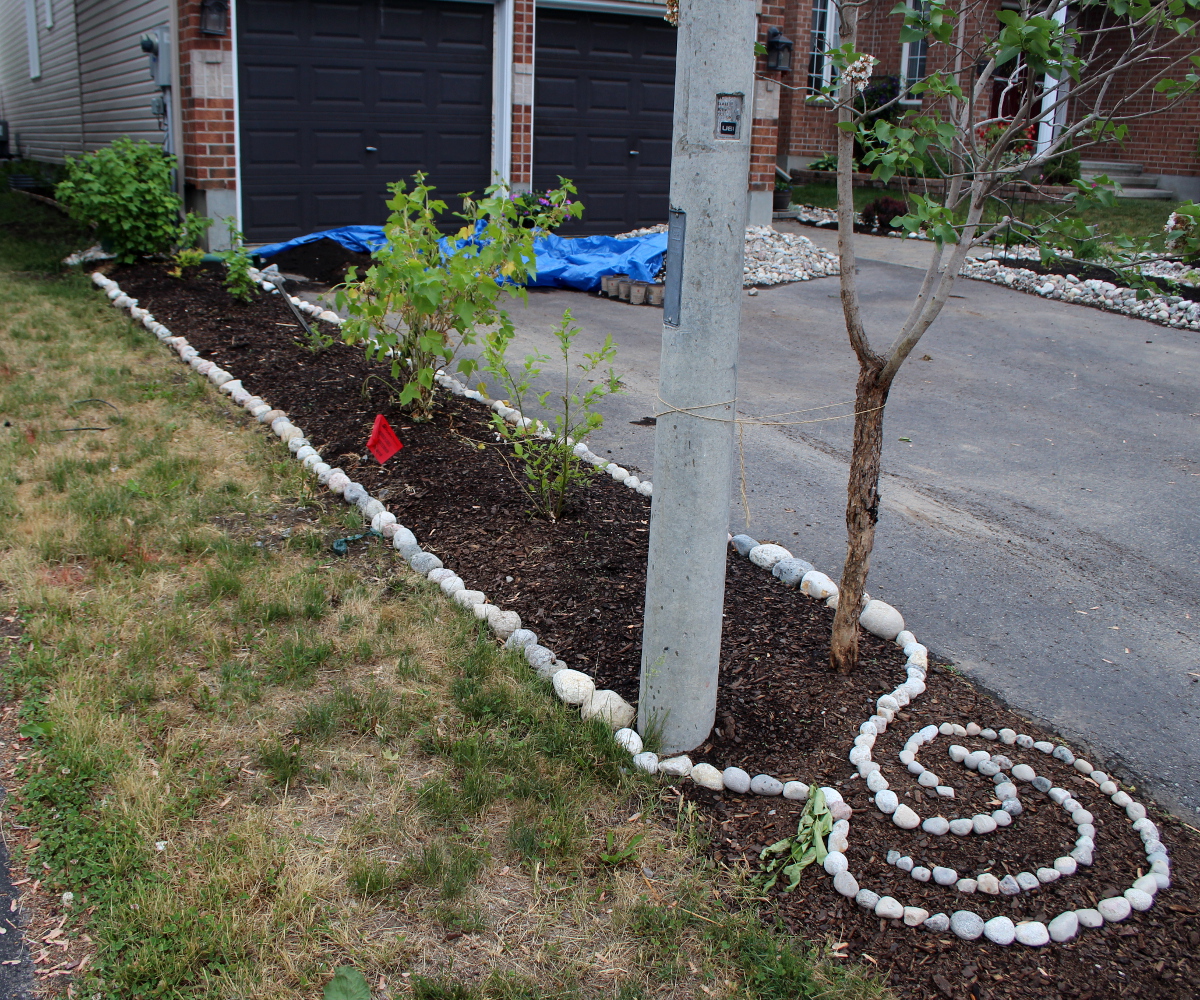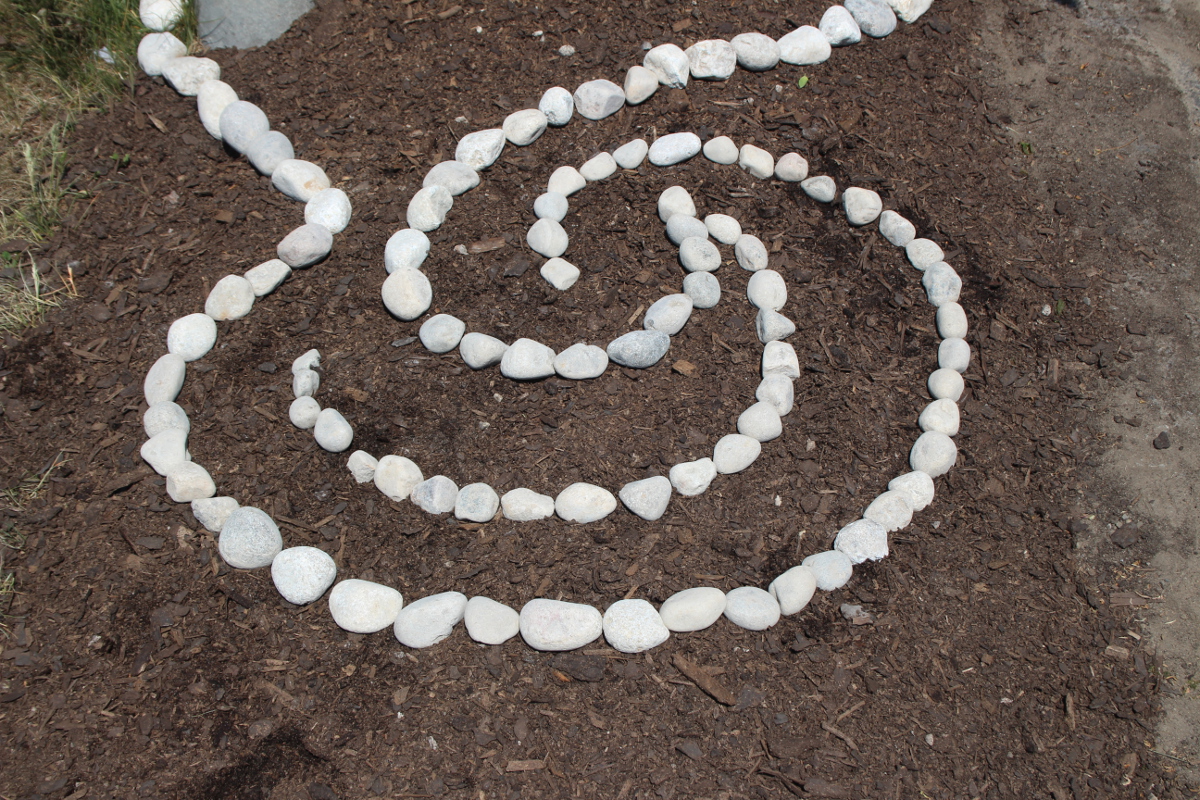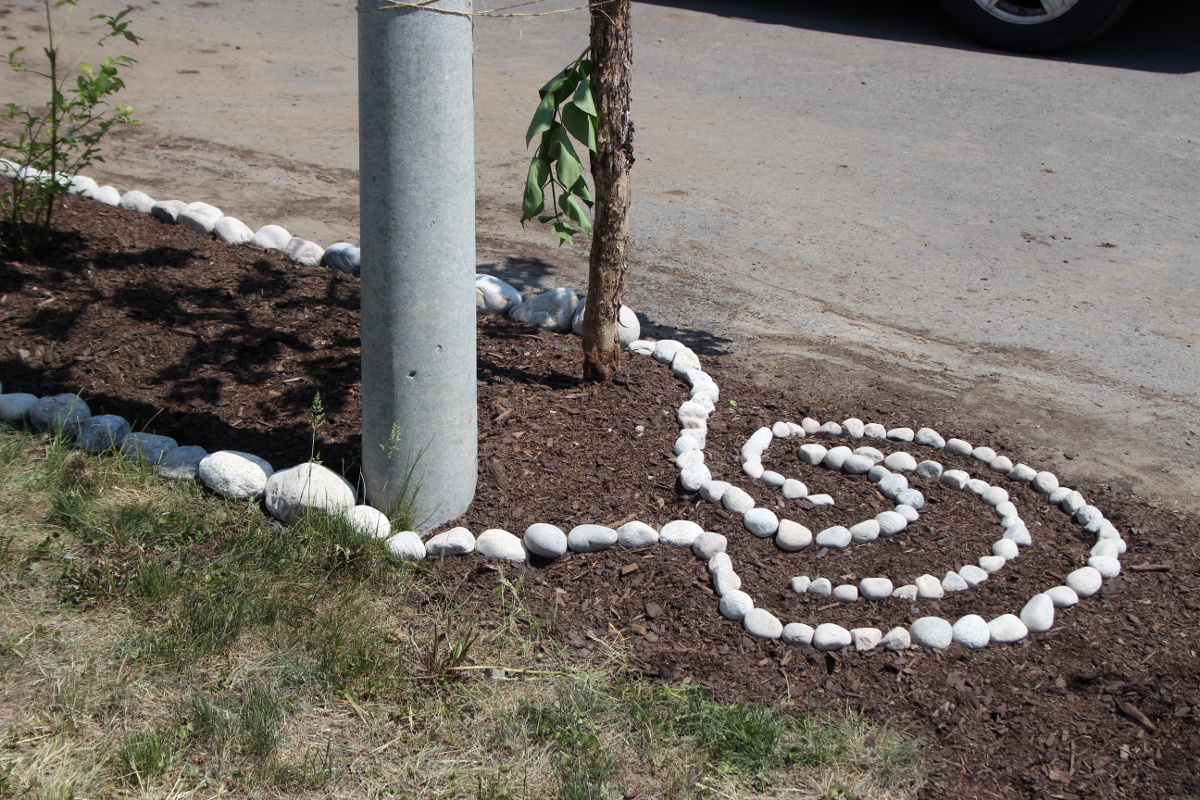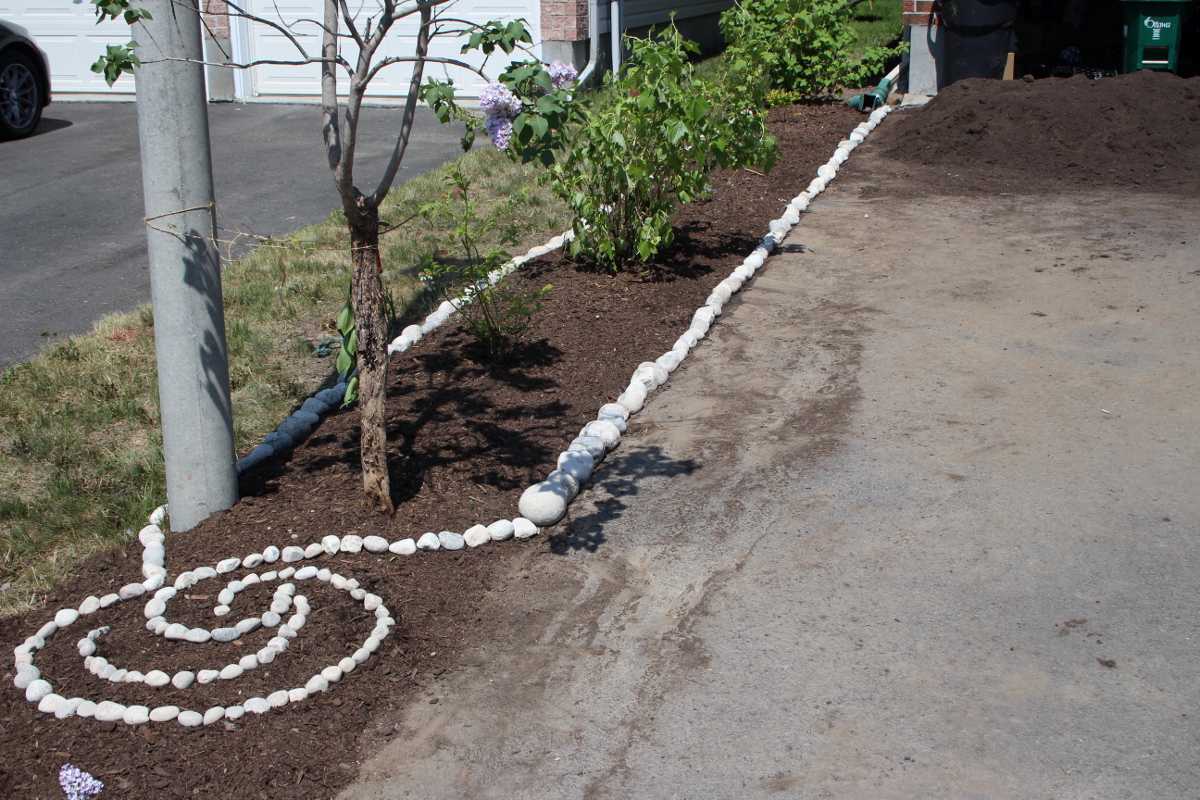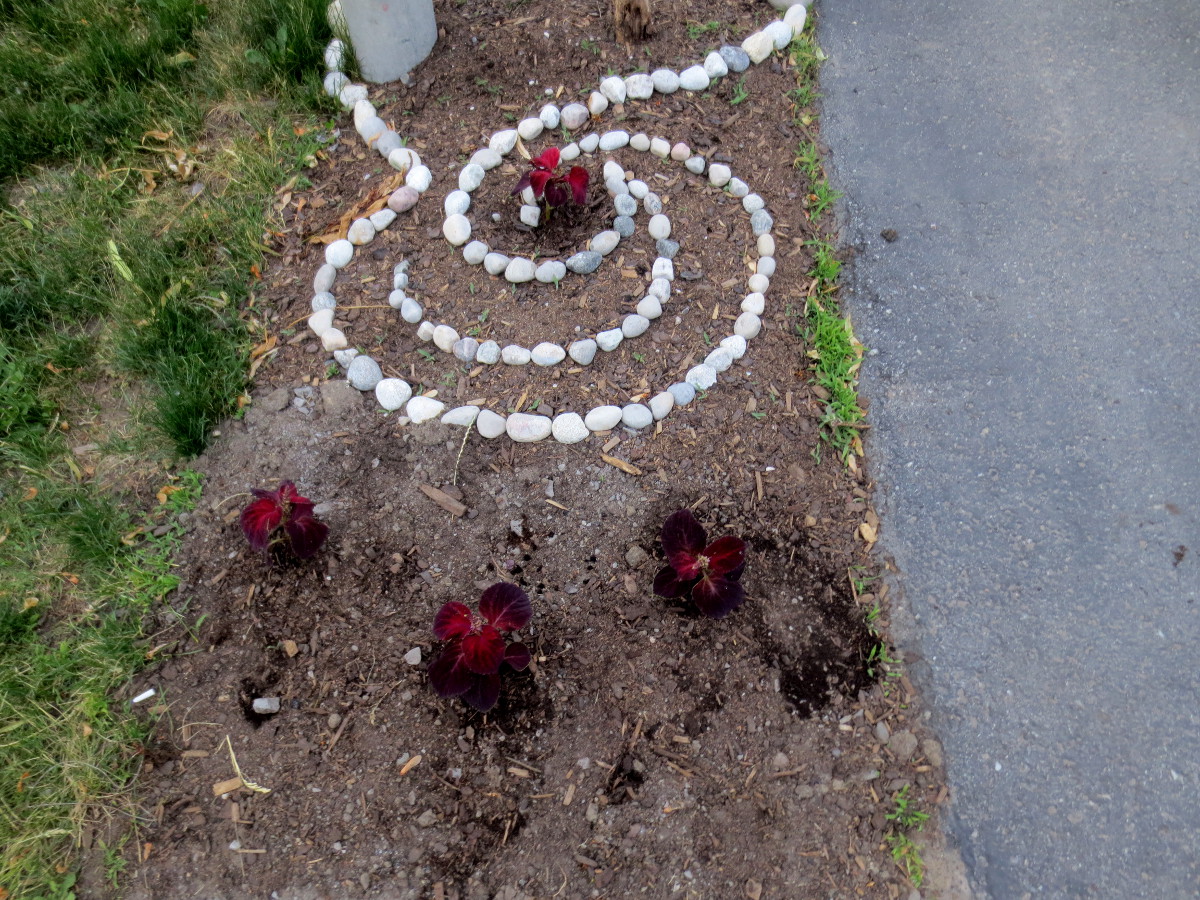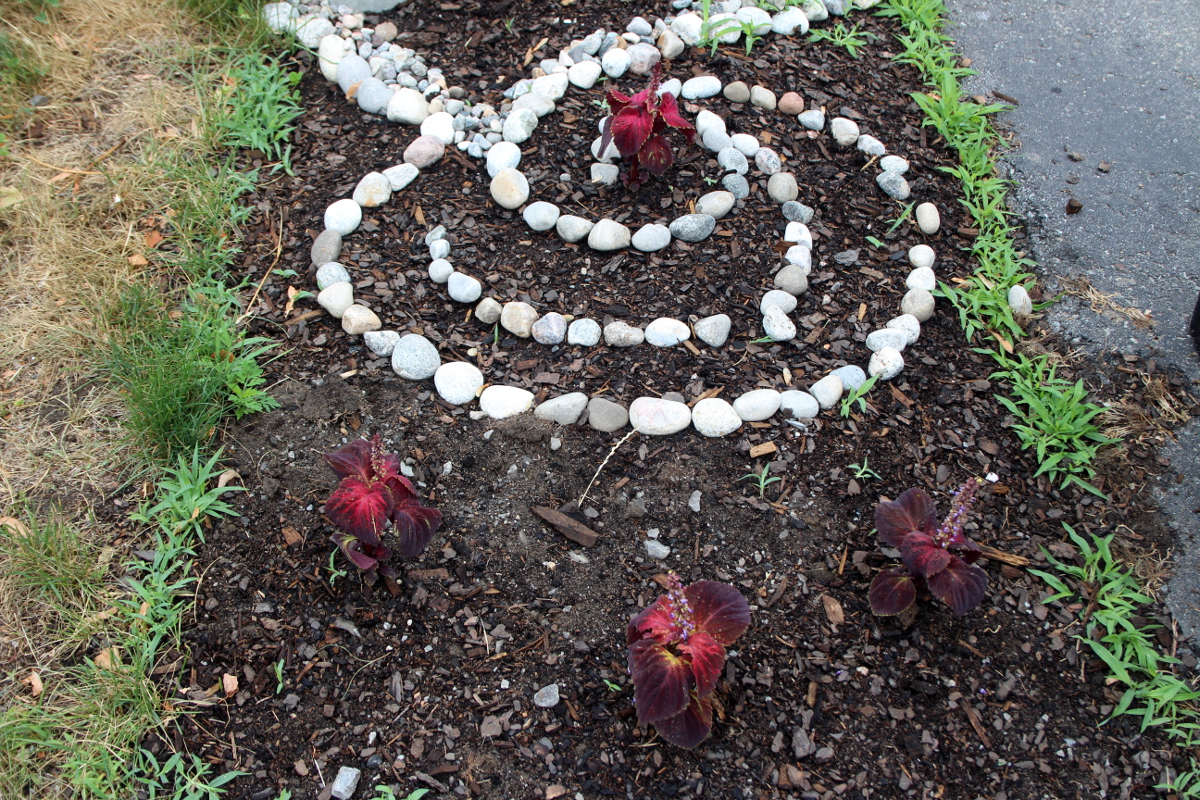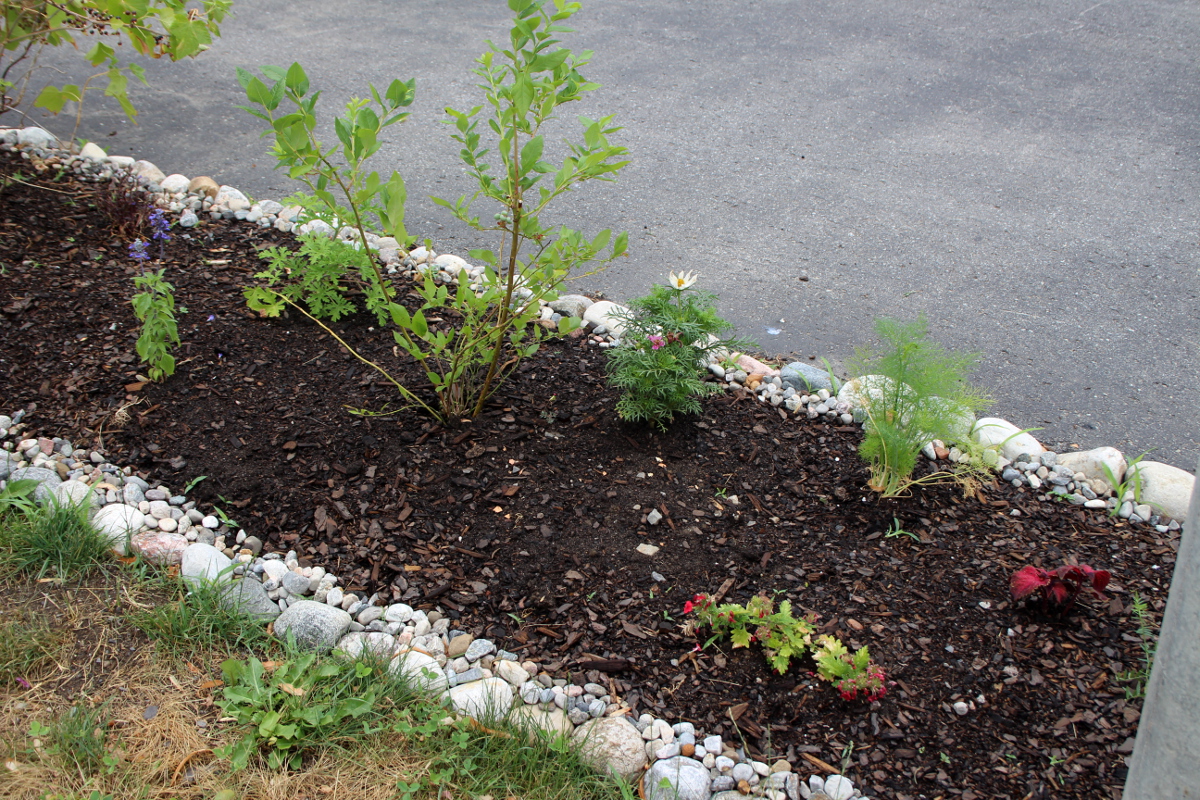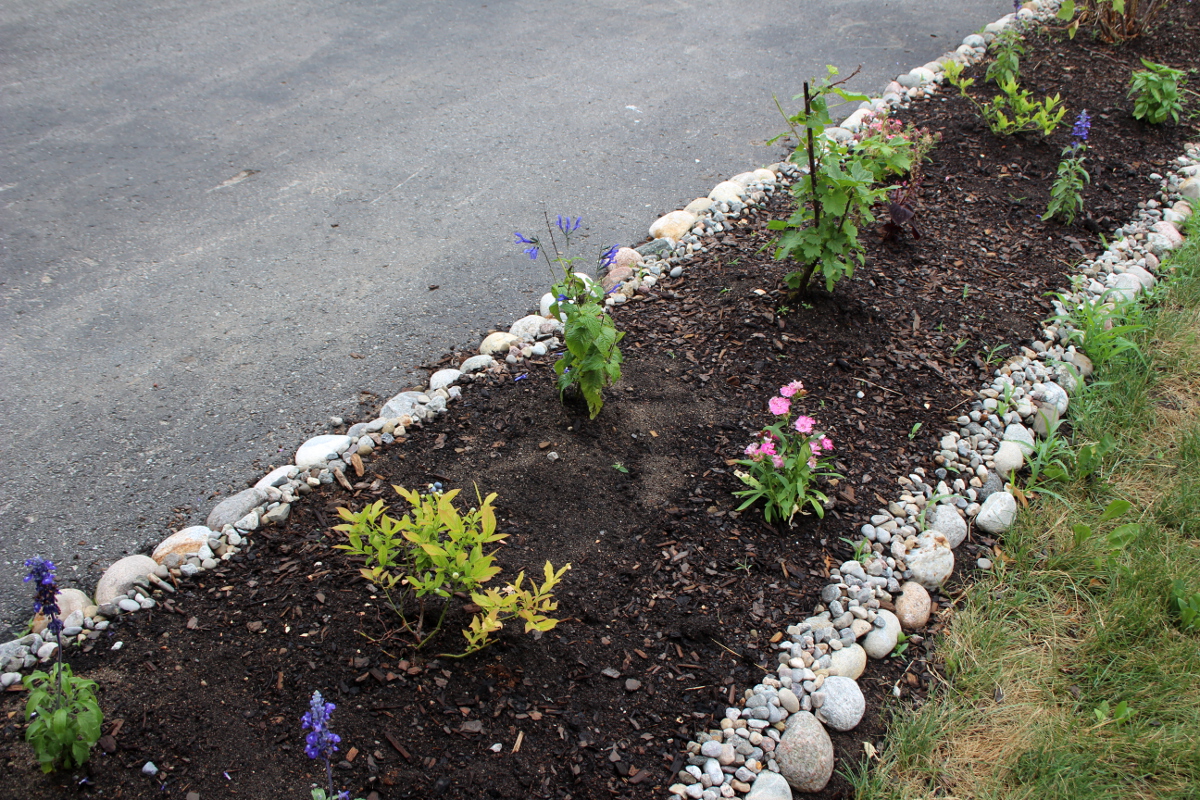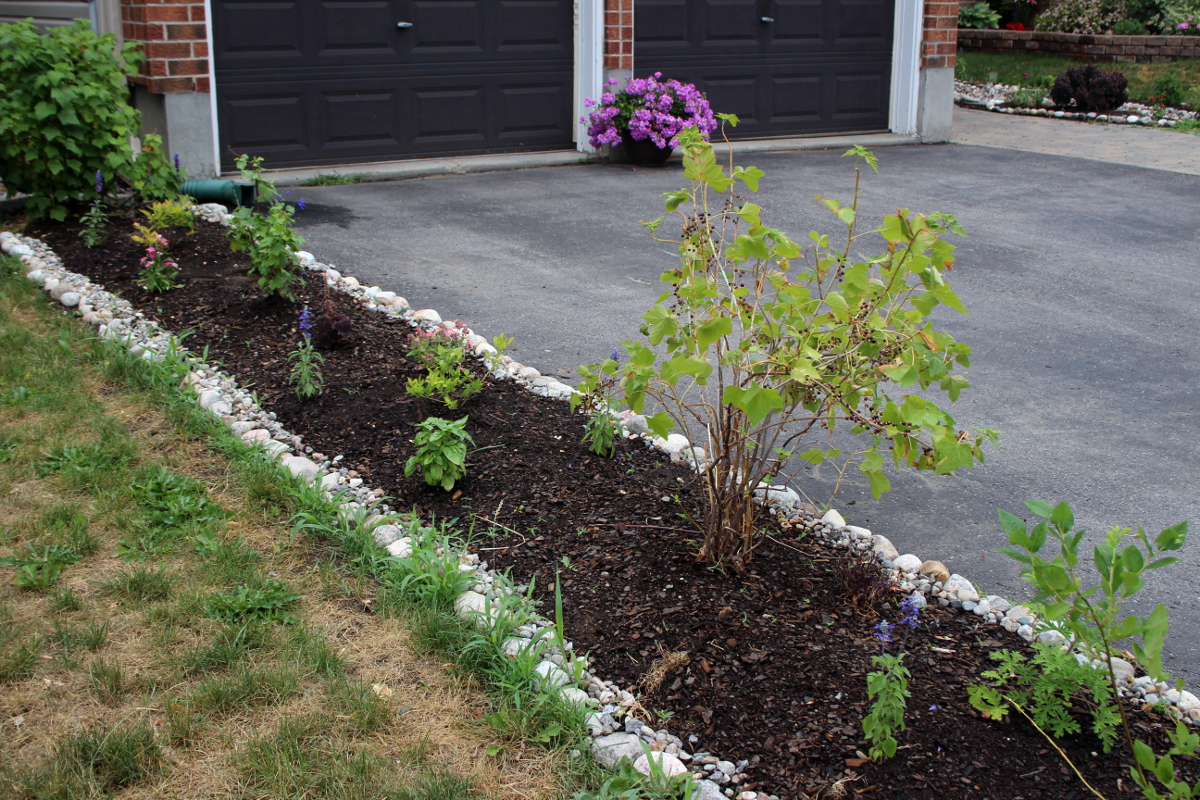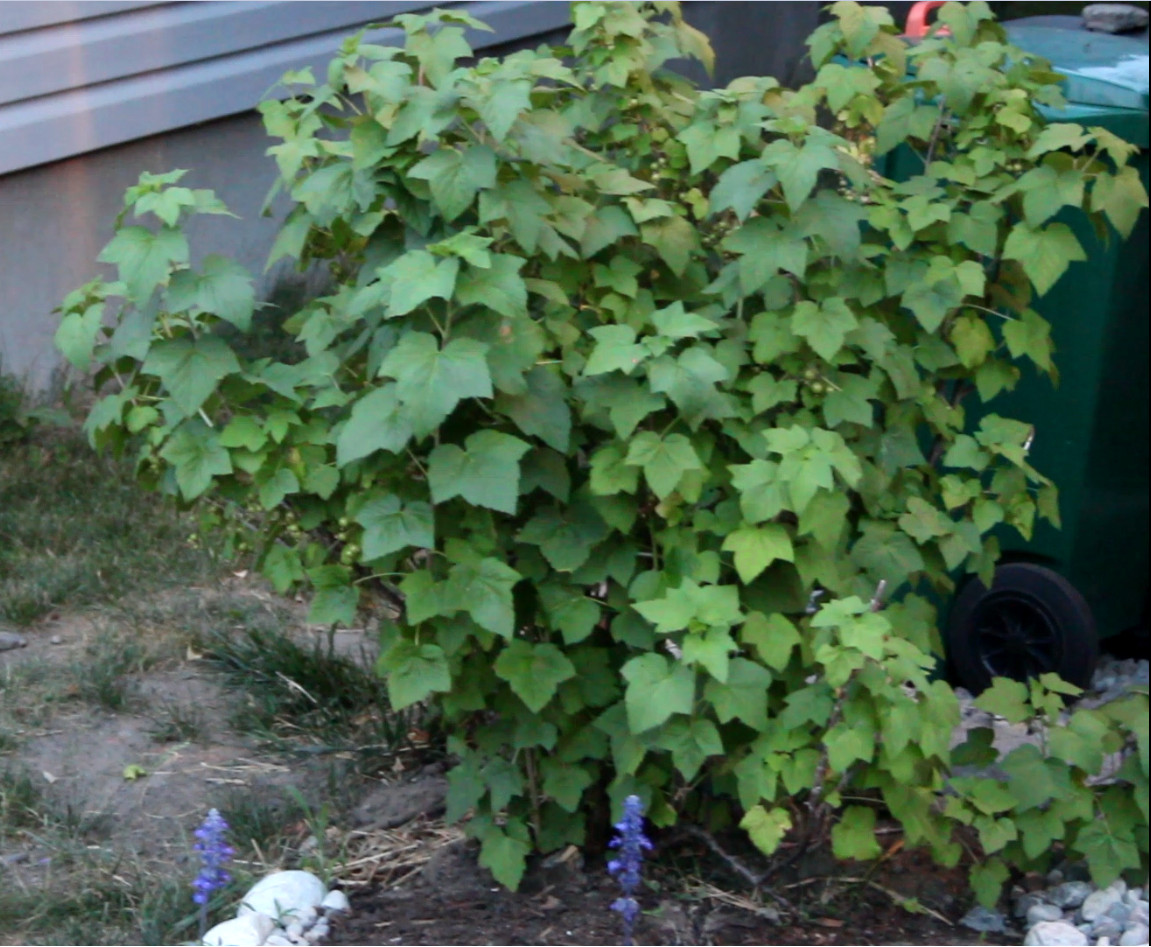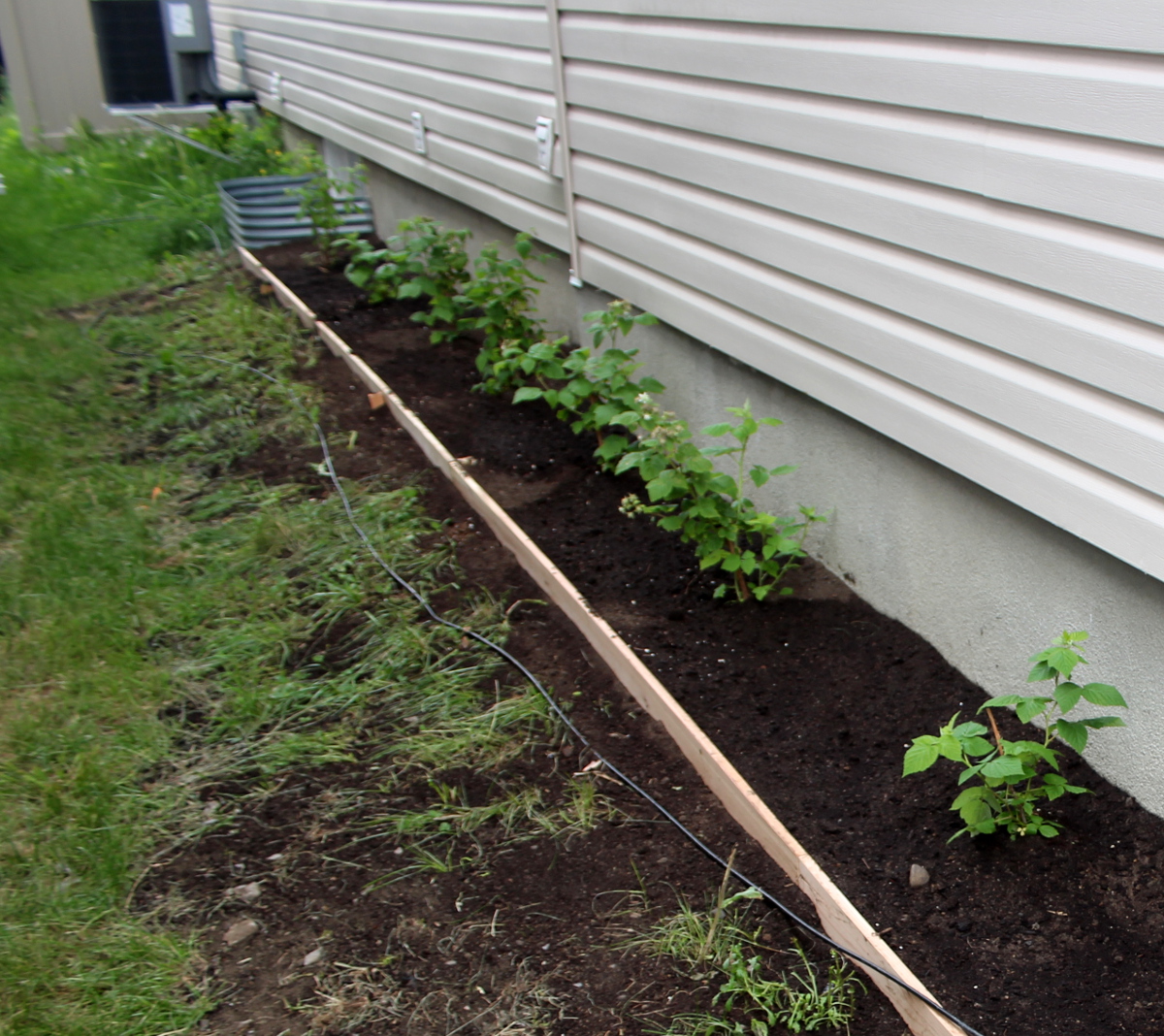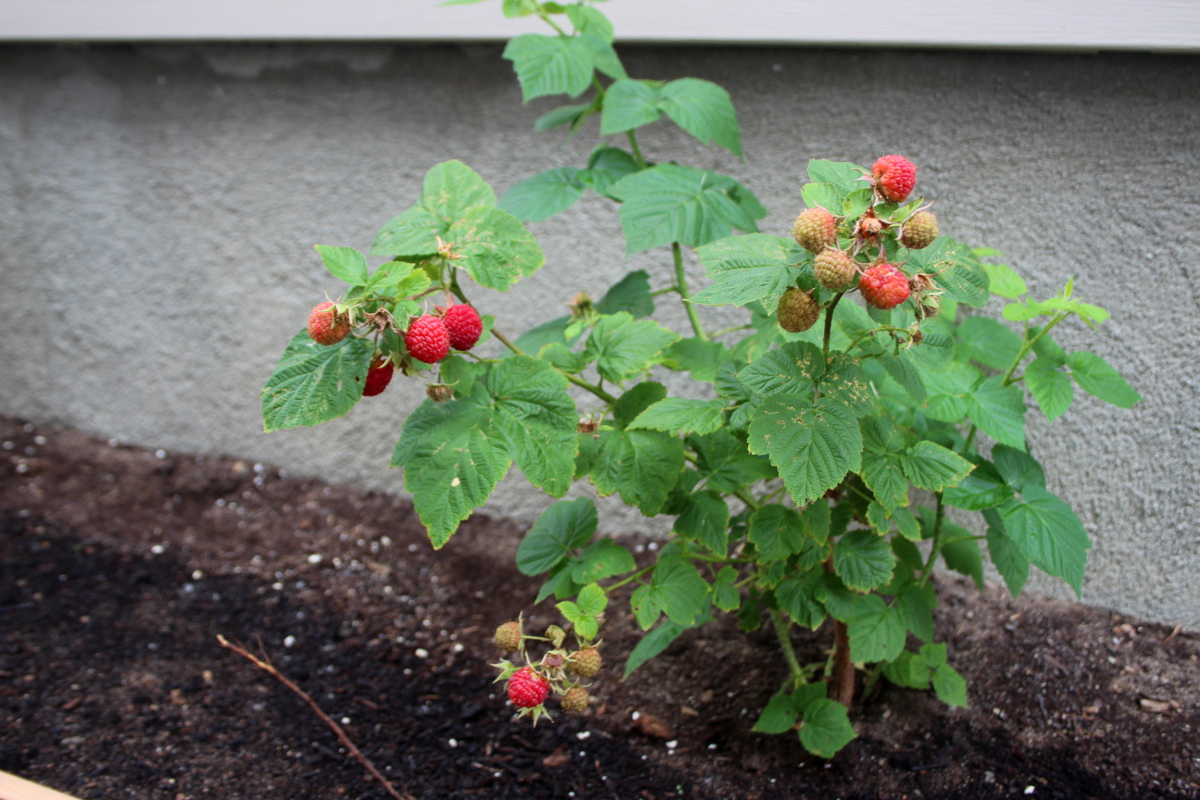When we moved into our new place last year, we brought with us two black currant bushes and a load of good soil for the back yard garden. We wanted to plant the bushes in front of the house, on a strip of useless lawn, but after digging a hole for one of them in the terrible rock-filled clay soil, we have decided against digging another hole. We have also realized that we might hit a utility line and there was no time to call up a locate in all the whirlwind of moving in. So the second bush got planted in the back yard.
Fast-forward one year. As part of our edible landscaping project, I wanted to incorporate as many berry bushes as possible on the underused parts of land. Thus the following plan was born:
This time, we had heavy equipment with which to dig and plenty of good mix of soil and compost, thanks to Gavin from Edible Landscaping Ottawa.
First, we stripped off the top layer of soil and grass You can see the difference between the soil under our lawn and the fresh pile of soil on the driveway in the photo above. Then we filled this new bed in with good soil, and have moved the lilac tree from the back garden to this new bed, to provide the vertical accent at the front and free up space in the back yard. The second black currant bush was also replanted from the back garden.
As Gavin was planting the bushes, I was mixing in eggshells I’ve collected over the winter, to add mineral content to the soil.
Once everything was planted, we’ve added a layer of mulch. Then kids and I have built the rock borders around the bed, to keep the soil and mulch in and give the bed a visual frame. On a whim, I’ve decided to make a spiral design at the end of the berry bush bed.
A few days later, I’ve planted various herbs and small ornamental plants in between bushes and around the spiral, to give the bed some character while the bushes are small.
Afterwards, I filled in the bed contours with smaller river rocks, to give it more dimension visually and to minimize washing out of the soil, which is due to the bed being heaped in the middle.
Here are some fennel, verbena, cosmos and purple salvia around a blueberry bush.
Basil, pelargonium, and more salvia around the bluberry bush (bright green) and the red currant bush.
The tall bush here is the replanted black currant from the back yard. It might need another year to fully recover, but it’s already covered in berries.
And this lush beauty is the black currant that was replanted from our former place last year. My hope is that the second bush fills out just as nicely as this one had.
We have also planted a row of raspberry bushes along the shady side of the house. They were put in sunken beds to provide them with the good soil and to curb their spread.
A month later, we are picking a few raspberries each day. Kids come exploring with me, and my 2-year old points to the not-yet-ripe berries and confidently states “not ready”. They love picking berries right off the bush.
On the other side of the house, where it’s sunny for a part of the day, we’ve built bigger boxes protected from rabbits, to grow tomatoes, cucumbers, eggplant, beets, cabbage, and radishes.
Do you have spaces around your house that you can use to grow food?







